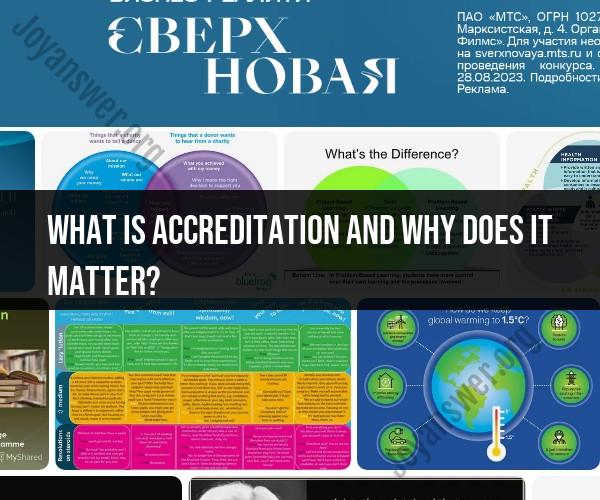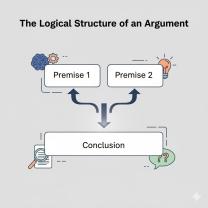What is accreditation and why does it matter?
Accreditation is a formal process through which organizations or educational institutions are evaluated against predetermined standards of quality, competence, and performance. Accreditation serves as a mark of recognition that an entity meets established criteria, which can have significant importance and implications in various fields. Let's delve into the importance and implications of accreditation:
Importance of Accreditation:
Quality Assurance: Accreditation ensures that organizations maintain a certain level of quality in their services, programs, or products. It serves as a way to validate that they meet established industry standards and benchmarks.
Consumer Confidence: Accreditation builds trust and confidence among consumers, patients, students, or clients. They can rely on accredited entities to provide reliable, safe, and effective services or products.
Continuous Improvement: The accreditation process encourages organizations to assess their operations, identify areas for improvement, and implement changes that align with best practices. It promotes a culture of continuous enhancement.
Legal and Regulatory Recognition: Many industries and sectors require accreditation for legal compliance or to participate in certain activities. Accreditation demonstrates a commitment to meeting legal and regulatory requirements.
Recognition and Prestige: Accredited organizations are recognized for their commitment to quality and excellence. This recognition can enhance their reputation and standing within their respective fields.
Transparency and Accountability: Accreditation involves rigorous evaluation by external bodies, promoting transparency and accountability in an organization's practices and operations.
Global Mobility: Accreditation from internationally recognized bodies can facilitate mobility across borders. Professionals with accredited credentials often have an advantage when seeking employment or recognition in other countries.
Implications of Accreditation:
Education and Training Institutions:
- Higher Education: Accreditation is crucial for colleges and universities, ensuring that their programs meet educational standards. Accredited degrees are generally recognized by employers and other institutions.
- Vocational Schools: Accreditation is relevant for trade schools and vocational programs, indicating that they offer quality training that aligns with industry demands.
Healthcare:
- Hospitals and Clinics: Accreditation demonstrates that healthcare facilities meet rigorous standards of patient care, safety, and infection control.
- Medical Professionals: Accredited medical programs and institutions produce doctors, nurses, and other healthcare professionals with validated qualifications.
Business and Industry:
- Product Quality: Accreditation for product testing laboratories ensures the accuracy and reliability of their assessments, contributing to consumer safety.
- Certifications: Accredited certifications (e.g., ISO certifications) indicate that businesses adhere to international standards for quality management, environmental practices, and more.
Nonprofits and NGOs:
- Nonprofit Organizations: Accreditation adds credibility to nonprofit organizations, demonstrating their commitment to transparency, ethical practices, and responsible stewardship of resources.
Government Agencies:
- Government Services: Accreditation of government agencies showcases their effectiveness and ability to provide essential services to the public.
Trade and Professional Associations:
- Professionalism: Accreditation of associations and bodies reinforces the professionalism and ethical standards upheld by their members.
In summary, accreditation holds significant importance across various sectors by ensuring quality, fostering consumer trust, promoting continuous improvement, and aligning with legal and regulatory requirements. The implications of accreditation are far-reaching, positively affecting organizations, professionals, consumers, and industries as a whole.












